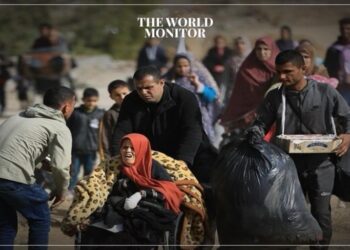Sudan denied on Sunday the existence of famine in the Zamzam IDP camp in North Darfur, while a relief organization warned of a severe food shortage for malnourished children in the camp.
A global hunger monitor concluded on Thursday that there is famine in the Zamzam camp, suggesting that it is likely to continue at least until October.
Experts and UN officials say that declaring a famine can lead to a UN Security Council resolution allowing agencies to deliver relief supplies across borders to those in need. However, Sudanese officials argue that declaring a famine could be a pretext for international intervention in the country’s affairs.
The ongoing war between the Sudanese army and the Rapid Support Forces (RSF) for more than 15 months has caused the largest internal displacement crisis in the world, leaving 25 million people, or half the population, in urgent need of humanitarian aid.
Earlier this year, Médecins Sans Frontières (MSF) stated that a child dies every two hours in the camp, which shelters half a million people. MSF posted on the X platform on Sunday, “Our teams have only enough therapeutic food to treat malnourished children in Zamzam camp for another two weeks.”
However, Sudan’s Humanitarian Aid Commission stated on Sunday that talk of famine in the camp “has no basis in truth and does not meet the elements and conditions required to declare famines.”
The Sudanese government accused the RSF of imposing what it called a siege on the city of El Fasher, the capital of North Darfur state, leading to food and aid shortages.
The RSF announced on Friday its full solidarity with those suffering from famine and reiterated its offer to work with the UN to facilitate aid delivery.
Earlier on Sunday, MSF confirmed the risk of a severe food shortage for treating malnourished children in the Zamzam camp.
MSF stated that “without treatment, children with severe malnutrition are at risk of dying within three to six weeks.”
The organization reported, “Our three trucks carrying life-saving medical supplies, including therapeutic foods, have been prevented from reaching Zamzam and El Fasher in Kabkabiya for over a month by the RSF.”
MSF also mentioned that “the bed occupancy rate in our malnutrition ward is at 126%, indicating that many children are already in critical condition.”






